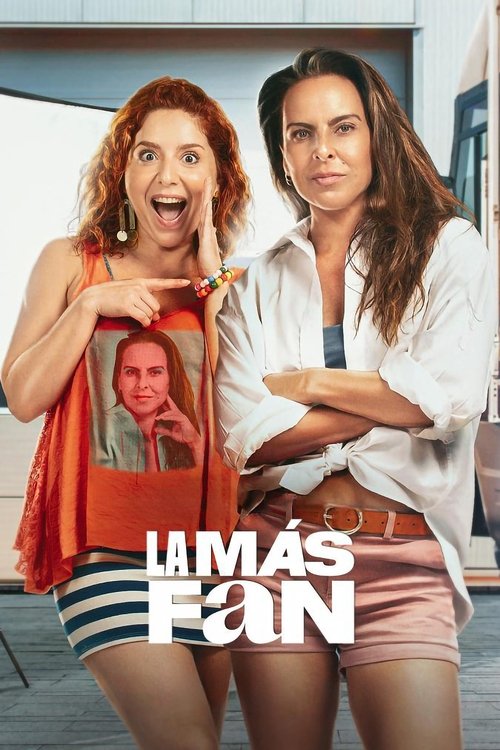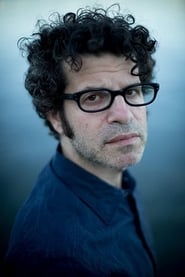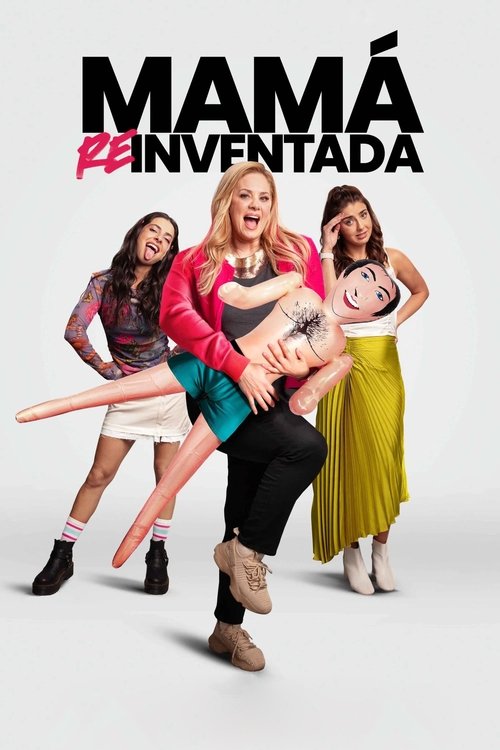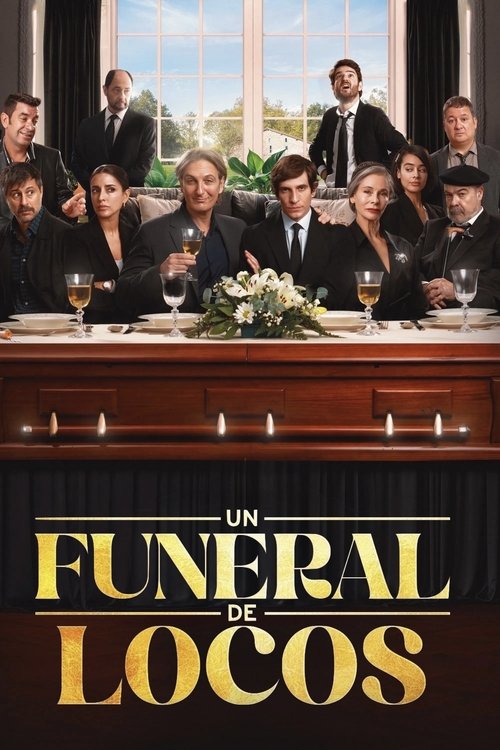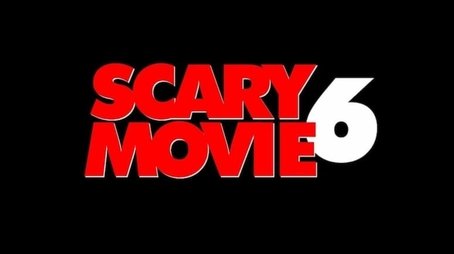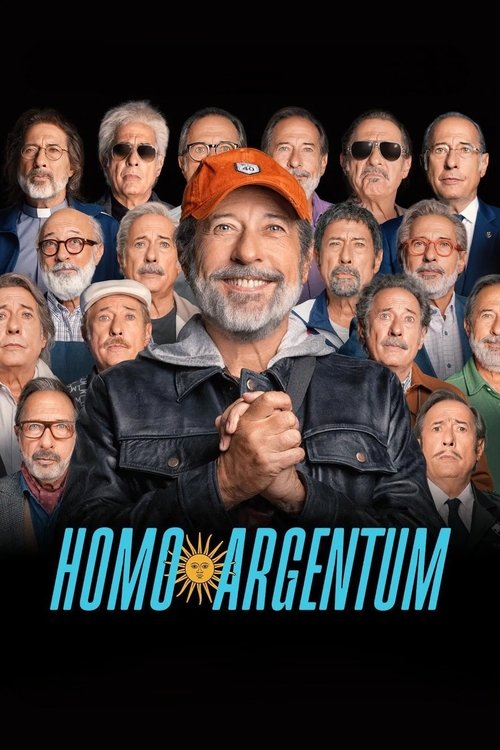
Ask Your Own Question
What is the plot?
Debbie wakes in her bedroom surrounded by posters and merchandise for Dream Street, the boy band she adores; she has a particular devotion to Chris Trousdale and keeps his photograph and memorabilia prominently displayed. In another city the Dream Street tour continues on schedule, with the band traveling between venues in a convoy. Chris develops a high fever while the tour is underway. During a stop, disoriented and feverish, he wanders away from the tour party and walks through a residential neighborhood in a haze. He approaches a house, opens a window, and climbs inside; he moves down a hallway and, exhausted, collapses in the bed of a young woman who has been dreaming of him. Debbie wakes to find the man from her posters lying across her sheets; she stares at him, believing she has found heaven, and the two experience a stunned, silent moment before words return.
Debbie asks Chris who he is, and he tells her his name in a tired, honest voice. She recognizes him immediately. Rather than call the police or alert anyone, she impulsively proposes that he stay with her for a while so he can recuperate away from the glare of fame. Chris, still feverish and grateful for the secrecy, agrees to remain hidden in her house. He accepts a towel and some water, and Debbie helps him sit up and tries to cool his forehead with a damp cloth. She hides him in the spare bedroom and instructs him to rest; she closes the door and tells him she will fetch food and keep watch.
Over the course of the next seven days Debbie keeps Chris concealed inside her home to give him a private escape from his obligations. She brings him meals and attends to his temperature, washing his hair and helping him change into clothes that are not the tour wardrobe. Chris sleeps, wakes, and slowly recuperates under her care. During the day he tries to stay out of sight, and Debbie takes pains to cover for him when neighbors or delivery people come to the door. She tells a few trusted friends that she is caring for a relative to explain the presence of a guest, and she places his luggage in the attic. The two spend long hours talking in whispers after Chris regains his energy; he answers questions about life on tour and listens to Debbie describe her everyday world. They walk in the neighborhood at night, Chris wrapped in a jacket to hide his face, and he experiences ordinary things like buying a soda at a corner store and sitting on a park bench without bodyguards.
Part of Debbie's plan to give Chris a break from celebrity life involves blending him into her daily routine. She enrolls him in her high school classes for a single day, and Chris consents to go disguised as an obviously awkward, bespectacled student. He pulls on a thrift-store sweater and wears glasses he does not need; Debbie tousles his hair and coaches him on slang and typical teenage responses. In class Chris hides behind a stack of books and answers a few questions in a quiet voice. Other students notice the odd new kid with a strange gait but accept him as a harmless nerd. Chris walks between classrooms with Debbie, sits through a lunch period in the cafeteria, and endures a gym class in which he pretends not to be able to run very fast. He experiences a normal schedule: a math lecture, a science lab in which he fumbles with equipment, and a school hallway crowded with lockers and chatter. At the end of the school day he returns home with Debbie, keeping his face down to avoid recognition from classmates.
While Chris lives anonymously in Debbie's spare room, the management team behind Dream Street comes apart at the seams. The band's managers notice Chris's absence almost immediately after the tour bus departs for the next show and Chris does not appear for scheduled soundcheck. They comb through advance hotel lists, security footage, and bus manifests. Phone calls between managers become frantic; they convene emergency meetings, call local police departments in cities on the tour route, and alert venue security to the possibility of a missing performer. The managers issue statements to the press suggesting that Chris has disappeared and may have been kidnapped. Posters with his face are distributed, and social media messages plead with fans for information about his whereabouts. The absence of Chris throws the tour into disarray: scheduled interviews are canceled, stage arrangements are altered, and the band rehearses without him, trying to cover his vocal parts and choreography.
Back in Debbie's home the week progresses with small, specific incidents that deepen the bond between the two. On the third night Debbie and Chris decorate her living room with fairy lights and sit on the floor eating pizza while they share childhood stories. Chris practices lines from interviews in a quiet voice and asks Debbie what it feels like to live without security. On the fourth day he accompanies her to the mall, hiding his face beneath a cap and sunglasses; they browse a music store so Chris can buy a disposable camera, and he takes a clandestine photograph of Debbie smiling. On the sixth day they attend a rehearsal for the high school prom where Debbie promises to take him, and he helps her pick a corsage. He jokes awkwardly with teenagers in the gym as they hang streamers and accepts a cheap boutonniere from a student council member who assumes Chris is a transfer student. Throughout these moments Debbie keeps the circumstances secret and Chris declines to contact his bandmates or handlers, saying he wants a quiet break and appreciates how ordinary small tasks feel.
News of Chris's disappearance intensifies as fans and media pick up on the managers' statements. Television vans appear outside the neighborhoods of known fans as reporters call phone numbers that lead to dead ends. The band members travel to the next scheduled show with heavy hearts and a heightened sense of urgency; they stand onstage before a restless audience and perform as the crew coordinates with local law enforcement to locate Chris. Managers interview private investigators, hire extra security teams, and coordinate with venues to search backstage areas and parking lots. Police compile leads, and security camera footage from near concert venues is reviewed frame by frame. Amid this frenzy, Debbie and Chris move carefully through their days, trying to avoid digital footprints and suspicious behavior.
Prom night arrives on the seventh evening of Chris's stay. Debbie buys a simple dress and shows Chris how to tie a tie; he wears sunglasses and a slightly ill-fitting suit jacket to keep his face from being recognized. They arrive at the decorated school gymnasium with its streamers and blinking lights and join students on the dance floor. Debbie and Chris slow-dance under a mass-produced banner, and he laughs in a way that is both delighted and reluctant; he wins a few timid compliments about how cute they look together. Two popular girls at the prom, who are jealous of Debbie's sudden change in fortune and suspicious of the new boy, start paying attention to the couple. Earlier in the evening those girls have watched Debbie and the new student with a mixture of curiosity and envy. At the prom they exchange whispers and then move closer to observe more closely. One of them recognizes a distinctive freckle or a familiar mannerism; the other takes a photo with her phone and, after a quick comparison with images circulated online of the missing star, the two girls realize that the "nerd" who is dancing with Debbie is Chris Trousdale.
The jealous girls do not confront the pair directly. Instead, they leave the gym, make a phone call, and report Chris's presence to the authorities and to the tour managers. They describe the couple's location and the red car in the school parking lot. Within minutes a patrol car and a security vehicle arrive outside the school. Officers enter the gym under instructions to locate Chris Trousdale, and a scene of alarm follows in which teachers and chaperones appear confused. Police ask for identification, and Chris, unable to produce documentation while hiding his true identity, is questioned. Debbie protests and tells the officers that he is a student who came with her, but the managers' statement and the description given by the two girls create a stronger chain of custody for law enforcement. The officers separate Debbie and Chris, escorting him out of the gym under official authority. She grabs for his hand as they lead him away, calling his name, but the officers maintain control and walk him to a patrol car outside.
After the police remove Chris from the prom, he is placed into custody for questioning and then transferred into the care of Dream Street's management and security team. Managers arrive at the station in suits and with a team of bodyguards; they hold a curt meeting with police, sign custody forms, and drive Chris to the tour bus compound. Debbie follows at a distance, desperate and pleading, but she loses sight of the convoy as it departs. Inside the manager's van Chris sits in silence, his expression guarded; he watches through a window as his brief sense of anonymity closes like a curtain. Debbie remains outside the station screaming his name until campus security and chaperones pull her away, explaining that she cannot follow the convoy and that the situation is now handled by the band's management.
Several hours later the tour schedule lists a concert in the same city where the prom occurred. The day of the show is tense: press vans assemble, fans line up, and managers plan a public appearance for the reunited band while also controlling how Chris will be reintroduced. The band members prepare backstage, adjusting microphones and running vocal warmups. Debbie, who has not been permitted backstage or to the tour bus, moves through the crowd outside the venue. She climbs over a security barrier and darts between fans to the stage area, where she hides behind equipment and under scaffolding to get a closer view of Chris's arrival. Security guards shout and attempt to maintain order, but Debbie slips through a loosened curtain during a distraction while stagehands move props. She emerges onto the wings of the stage at a moment when the crowd is roaring and the band is about to begin.
Onstage the spotlight picks out Dream Street as they start the opening chords. Chris steps into the lights wearing the wardrobe the tour provided and at first maintains a professional demeanor. Musicians tune, backup singers find their places, and the band launches into the first song. In the middle of a verse Chris spots Debbie standing at the edge of the stage. Her face is flushed and she is shouting his name, and he falters in his line for a heartbeat, eyes fixed on her through the glare. He moves toward her across the stage and the other band members part to give him space. Chris climbs down from the platform and takes Debbie's hand in front of a sea of screaming fans. The crowd's reaction shifts from confusion to elation as cameras pan across the audience and flashbulbs explode. Security attempts to intervene, but public enthusiasm and the spontaneous momentum of the moment override their restraint.
Chris pulls Debbie onto the stage, and the band resumes playing with him at the center. Debbie stands onstage amidst the instruments and stage monitors while Chris reaches for her and they share a kiss under the stage lights. The kiss is brief and the photographers capture it; then the band launches into a signature performance, singing and dancing as they had rehearsed. Debbie remains at Chris's side for the rest of the song, swaying to the rhythm while the audience cheers. After the final chorus the band takes their bows; stagehands and managers move in to shepherd everyone backstage, where security and handlers attempt to sort out the breach. Managers speak with Debbie and Chris in quick, clipped sentences, then the two are allowed a private moment in a dimmer back room with water and a single chair.
The concert continues and Dream Street performs a set of songs that the crowd had come to hear. The band's performance occupies the remainder of the evening as lights sweep across the arena and dancers move in sync. At the end of the show the band acknowledges the audience, and Chris gives a brief wave toward Debbie before the stage goes dark. After the performance the managers escort Chris and the other band members to the tour bus for departure. Debbie is allowed to walk outside and watch the convoy leave from a distance; she sees the bus headlights pull away into the night and hears the echo of the concert fade. The final image is Chris and Debbie onstage, framed by applause and spotlights, sharing a final tender kiss before the band resumes their professional duties. No characters die during these events; the film concludes with the band performing and the couple reunited in public, their short week of secrecy ending in a shared moment under the lights as Dream Street finishes the concert.
More Movies Like This
Browse All Movies →What is the ending?
The movie The Biggest Fan (2025) ends with Lana Cruz firing Polly, her assistant and biggest fan, after a series of misunderstandings and frustrations. Polly, once Lana's devoted admirer, becomes disillusioned and turns into her biggest critic. Lana remains struggling with her comeback and personal issues, while Polly departs bitter and resentful.
In the final sequence of The Biggest Fan, the story unfolds as follows:
Lana Cruz, a once-famous Hollywood actress who has been canceled and is trying to revive her career by working on a film in Mexico, is dealing with multiple pressures. She has hired Polly, a woman who idolizes her and works as her assistant, despite Polly's inexperience and awkwardness on set. Polly initially helps Lana by improving her public image through social media and supporting her during the film production.
However, Lana's frustration grows as Polly's clumsiness and slow learning create constant challenges. In one scene, Polly brings Lana beverages, but Lana accidentally spills one on Polly, highlighting the tension between them. Lana is also dealing with a demanding director who gives her little time to prepare for her role, adding to her stress.
At a critical moment, Polly overhears Lana speaking harshly about her behind her back. This deeply hurts Polly, who had idolized Lana and wanted to help her. Lana's cold attitude and desire to fire Polly culminate in Polly being dismissed from the production.
After being fired, Polly's feelings shift dramatically. From being Lana's biggest fan, she becomes her biggest hater, feeling betrayed and disillusioned. Lana, meanwhile, continues to grapple with her tarnished reputation and the challenges of reclaiming her stardom.
The film closes on this note of fractured relationships and unresolved tension, with Lana still facing the consequences of her arrogance and Polly turning away from the woman she once admired.
Thus, the fates of the main characters at the end are:
- Lana Cruz remains a struggling actress trying to rebuild her career but is burdened by her difficult personality and past mistakes.
- Polly leaves the production embittered, no longer Lana's fan but her critic, marking a complete reversal in their relationship.
This ending highlights the volatile nature of fame and the fragile dynamics between celebrities and their fans. It also underscores the personal costs of arrogance and the difficulty of genuine connection in the entertainment industry.
Is there a post-credit scene?
The movie titled The Biggest Fan produced in 2025 does not have any publicly documented post-credits scene based on the available search results. None of the sources mention a post-credits scene specifically for The Biggest Fan or provide a description of such a scene for this film. The search results discuss post-credits scenes in general for 2025 movies and detail scenes for other films like Fantastic Four and How to Train Your Dragon, but The Biggest Fan is not referenced in this context.
Therefore, it appears that The Biggest Fan either does not include a post-credits scene or it has not been publicly detailed or highlighted in available sources as of now.
What is the nature of the relationship between Lana Cruz and Polly in the movie The Biggest Fan (2025)?
Lana Cruz hires Polly as her assistant, who is also her biggest fan. Initially, Polly idolizes Lana and is eager to help her, but Lana is rude and dismissive towards Polly. Over time, Polly's admiration turns into resentment after Lana speaks badly about her and eventually fires her, leading Polly to become Lana's biggest hater.
How does Polly's role affect Lana Cruz's public image in The Biggest Fan (2025)?
Polly helps improve Lana's public image by posting positive content about her on social media. Despite this, Lana remains ungrateful and harsh towards Polly, which contributes to the tension between them.
What challenges does Lana Cruz face on the film set in The Biggest Fan (2025)?
Lana struggles with a demanding and strange man who doesn't give her time to prepare for her role, and she also has to manage Polly, who is inexperienced and slow to learn. These challenges add to Lana's stress and frustration during the production.
What causes the turning point in Polly's attitude towards Lana in The Biggest Fan (2025)?
The turning point occurs when Polly overhears Lana speaking negatively about her, which almost brings Polly to tears. Feeling betrayed by the woman she idolized, Polly's admiration turns into hatred, especially after Lana fires her.
How is Lana Cruz characterized in The Biggest Fan (2025)?
Lana Cruz is portrayed as a big-time actress who is arrogant, rude, self-absorbed, and disdainful towards her fans. Her behavior contributes to her downfall and the conflicts in the story.
Is this family friendly?
The movie The Biggest Fan (2025) is not family friendly and is rated TV-MA due to strong language, suggestive content, and alcohol use. It contains frequent strong language in both English and Spanish, mild sexual innuendo and flirtation without nudity or graphic scenes, and party scenes involving alcohol. There is no real violence or gore, only slapstick comedic physical moments without blood or serious danger. The film also touches on mature themes like celebrity downfall, obsession, and mental health in a comedic tone. These elements may be inappropriate or upsetting for children and sensitive viewers.
Potentially objectionable or upsetting aspects include:
- Frequent strong language and casual use of swear words and insults
- Mildly suggestive scenes and sexual jokes
- Alcohol use and reckless behavior in party settings
- Themes of mental health struggles and celebrity scandal, though handled comedically
- Some awkward or embarrassing comedic moments that might be uncomfortable to watch
There is no explicit violence, nudity, or intense frightening scenes. However, due to the mature language and themes, it is best suited for adult audiences rather than children or sensitive viewers.

